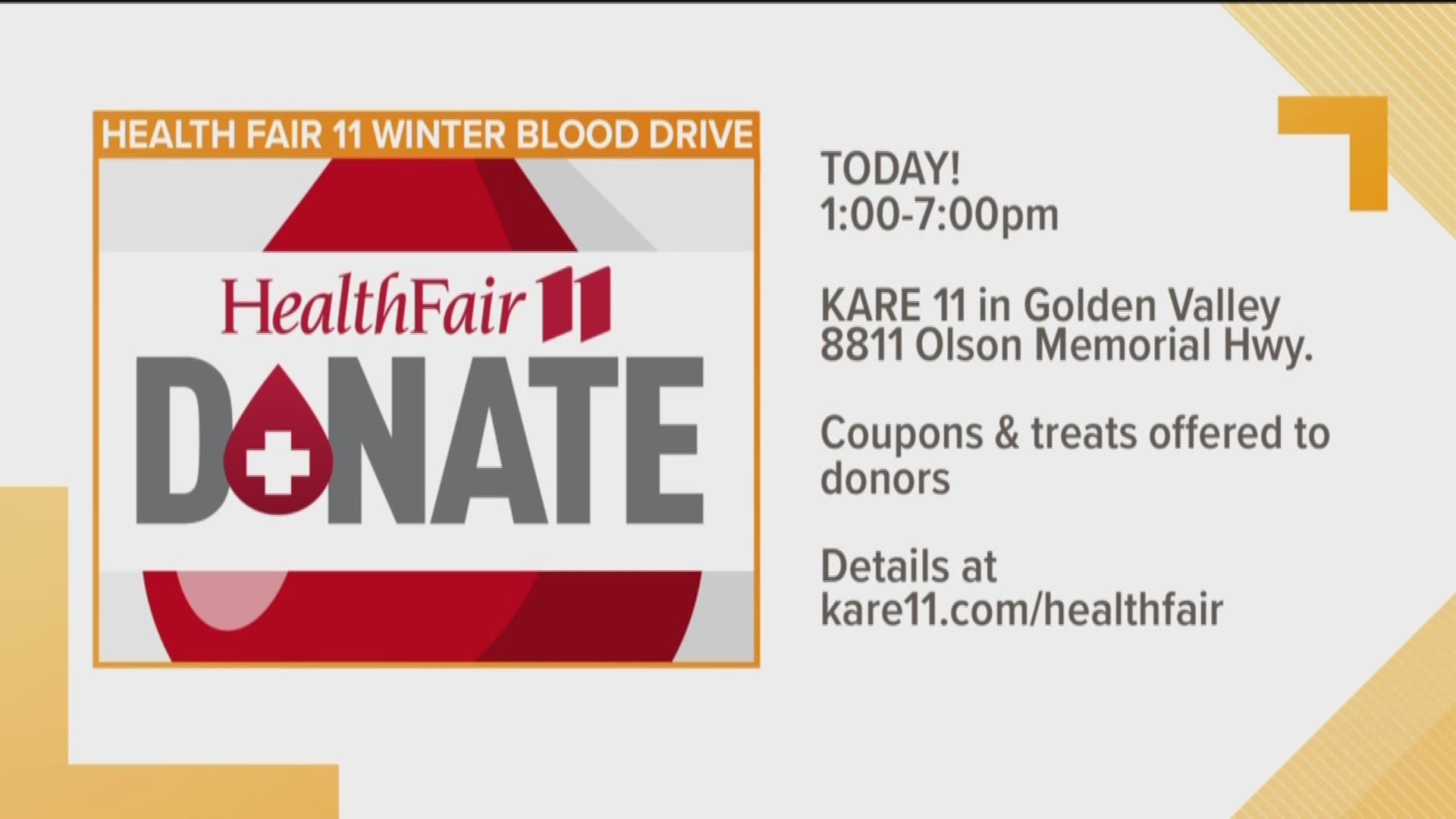Want to help save lives? There's a pretty easy way to do it: donate blood!
Stop by our KARE 11 studios in Golden Valley between 1 p.m. and 7 p.m. on Thursday, Jan. 10 as we team up with the American Red Cross to fill the critical need for blood.
You've heard the sales pitch before, but there are really important reasons you should donate today.
If you don't think you can, you might be surprised.
Did you know these 11 things about donating blood?
To help prepare for your blood donation, the Red Cross has these 11 tips:
- Most medications – and even getting the flu shot – will not disqualify you from being able to donate if you’re feeling well and are fever-free.
- In most states, including Minnesota, you may be eligible to give blood immediately after getting inked. As long as the tattoo was applied by a state-regulated entity using sterile needles and ink that is not reused.
- You’re never too old to donate blood. While in Minnesota you need to be 16 years old to donate with parental consent, there is no upper age limit.
- Your blood may travel! After meeting local needs first, donated blood may also go to patients in need at hospitals throughout Minnesota or even across the U.S. through the Red Cross national inventory system.
- Donors get a mini physical during their pre-screening. Besides the general benefits of goodwill knowing you helped save lives, the Red Cross checks your temperature, pulse, blood pressure and hemoglobin level before each donation.
- You don’t need to know your blood type. More than 53 percent of people believe they need to know their blood type to donate blood—this is simply not true. (Donors may be notified of their blood type following their donation when they receive their blood donor card or by creating a profile through the Red Cross Blood Donor App.)
There are more ways to increase your iron levels than just eating red meat, poultry or fish. Lots of plant-based fruits, vegetables and nuts are rich in iron, so stock up on your tofu, spinach, and strawberries before your donation.
It’s important to prepare for a successful blood donation. Hydrate and eat a healthy meal before your donation. Drink plenty of fluids (an extra four 8-ounce glasses of fluids) and eat nutritious foods rich in iron and vitamin C such as tomatoes, citrus fruits and red, and yellow and orange peppers.
Donors are encouraged to drink juice and eat cookies after their blood donation to help replenish their bodies. Blood contains many substances including red blood cells (full of iron), white blood cells, plasma and platelets, plus water and various nutrients and minerals, which is why it’s critical that donors replenish their bodies with post-donation snacks and fluids.
You can save up to 15 minutes at the blood drive by completing a RapidPass. With RapidPass, donors complete the pre-donation reading and health history questionnaire online, on the day of donation, from a mobile device or computer.
Scheduling a blood donation appointment is EASY! All eligible individuals can make an appointment by using the free Red Cross Blood Donor App, visiting RedCrossBlood.org or calling 1-800-REDCROSS (1-800-733-2767).
More from KARE 11 Sunrise:

